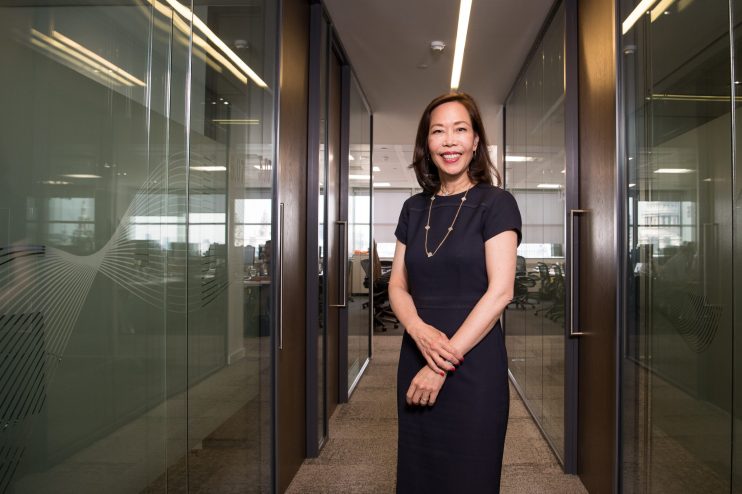IG’s June Felix: Shorter trading hours would make London ‘less competitive’

The head of one of Britain’s largest trading platforms has become one of the most senior industry figures to speak out against proposals to cut trading hours in London, saying it would not be “helpful” for the City and could make it “less competitive globally”.
June Felix, whose company IG Group offers 24-hour trading to customers, said “the whole idea that everything has to be around work/life balance” is a “bit skewed”.
“Based on that, you wouldn’t have 24-hour electricity… you wouldn’t have 24-hour police support,” she told City A.M.
Industry bodies have been lobbying for the London Stock Exchange (LSE) to trim the City’s trading day, arguing that the change would improve workplace culture and market liquidity. In December the bourse launched a consultation into cutting hours.
“Right now London has a lot of challenges with Brexit,” said Felix, who has been the FTSE 250 company’s chief executive since 2018.
“Adding [shorter hours] on top of that to make you less competitive globally would not necessarily, in my humble opinion, be helpful to where London wants to be and remain to be a global financial hub.”
At eight and a half hours, London currently has one of the longest trading days in the world, with markets active from 8am to 4.30pm. Traders in New York and Tokyo work for two hours fewer, while markets in Tokyo and Hong Kong both pause for lunch.
London’s trading day is harmonised with its European counterparts, and is designed to overlap with the close of Asian markets and opening of the US. Earlier this month, Euronext, which operates exchanges across Europe, launched its own consultation on market hours.
Consultation on trading hours ‘asking the wrong question’
The Association of Financial Markets in Europe and the Investment Association, which are spearheading calls for a shorter trading day in London, have argued long hours are bad for traders’ mental wellbeing and particularly impact women and working parents. Blackrock, Schroders, and Standard Life Aberdeen have all backed calls to trim London’s market hours.
The LSE’s consultation document on trading hours acknowledged that a shorter day could “encourage staff diversity” and have a “positive impact on the mental wellbeing of staff”.
Asked if she thought shorter hours could help promote diversity, Felix said: “We also have to be practical: this is a globally competitive world. These global markets exist to enhance liquidity for economies and companies”.
She said the LSE’s consultation was “asking the wrong question” for the City, and that firms should be focused on creating “a vibrant sustainable business” for both their employees and clients.
“If you’re going to be a global financial hub, there’s a lot of aspects to that question. How do you become available?” she added.
“Maybe you can do that with lunch breaks and having everyone on automated systems… but markets are quite volatile right now because of all the change and I think it’s important to be responsible in that”.
More work to do on diversity in financial services
Earlier this month, FTSE 100 bosses were accused of “dragging their feet” over a target to appoint a non-white director to their board by the end of 2021, after it emerged that just 53 had done so to date.
Felix, who is one of just a handful of women of colour currently leading FTSE 350 firms, said it was the “harsh reality” that the financial services industry “still has a lot of need to progress” on diversity.
“We do have to remember that it’s really good business to have diversity,” said Felix, citing research showing that diverse firms produce better returns. “It’s not just the right thing to do to be fair, it’s good business sense.”
“Creating the right environment” to help diverse employees excel is key to improving representation, she continued. While she prides herself on IG’s diversity as a business, she added, she is not complacent about progress.
“We have great representation across the business and are continuing to work on it,” she said. “It’s something we feel good about, but it’s not like it’s over.”
“It’s a question of making people feel included, and not feeling that being different is a problem.”